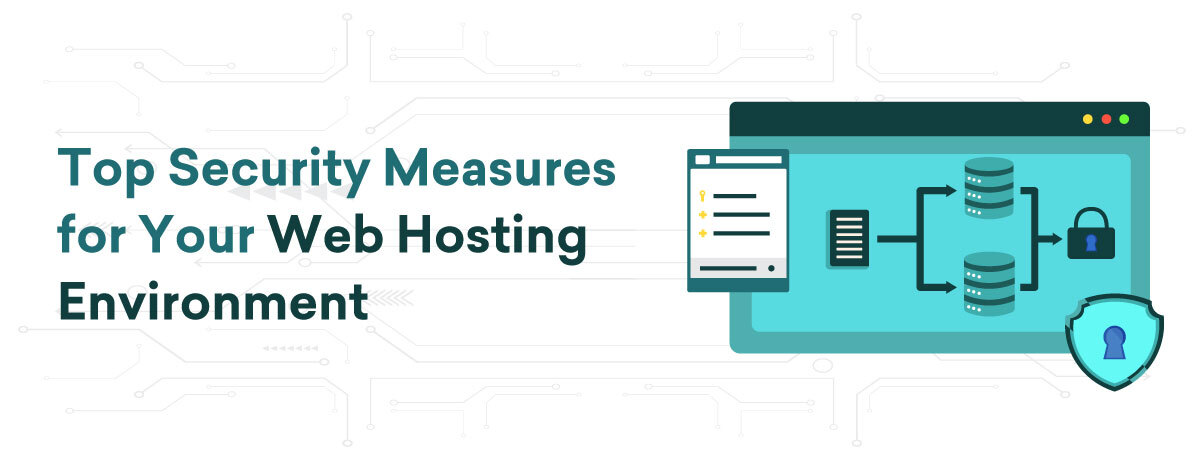In today’s digital age, ensuring the security of your web hosting environment is paramount. Cyber threats are becoming increasingly sophisticated, and a single breach can have devastating consequences for businesses and individuals alike. Protecting your web hosting environment requires a multifaceted approach that includes best practices, tools, and constant vigilance. Here are some top security measures to implement for robust web hosting security.
1. Choose a Secure Web Hosting Provider
Your web hosting provider is the first line of defence against cyber threats. Select a provider known for its security features. Look for features such as SSL certificates, DDoS protection, regular backups, and a strong firewall. Additionally, ensure that the provider complies with industry standards and regulations, such as GDPR and PCI DSS, to guarantee data protection and privacy.
2. Regularly Update Software
Keeping your software up-to-date is crucial. This includes your Content Management System (CMS), plugins, themes, and any other software you use. Updates often contain patches for security vulnerabilities that have been discovered since the previous version. Set up automatic updates where possible, and regularly check for and install updates manually for those that require it.
3. Implement Strong Password Policies
Weak passwords are an open invitation for hackers. Use strong, complex passwords that include a mix of letters, numbers, and special characters. Avoid utilizing readily predictable data such as birthdates or ubiquitous terms. Employ a password manager to generate and store complex passwords securely. Additionally, enforce regular password changes and educate users on the importance of password security.
4. Enable Two-Factor Authentication (2FA)
Two-step verification enhances security by necessitating a second form of confirmation alongside the password. This could be a code sent to a mobile device or an authentication app. Enabling 2FA can significantly reduce the risk of unauthorized access even if passwords are compromised.
5. Use Secure Protocols
Ensure that all data transmitted between your server and users is encrypted. Use HTTPS instead of HTTP by installing an SSL/TLS certificate on your website. HTTPS encrypts data, making it much harder for attackers to intercept and misuse it. Also, consider using secure protocols for email (such as SMTPS) and file transfer (such as SFTP).
6. Conduct Regular Security Audits
Regular security audits help identify vulnerabilities in your web hosting environment. These audits can be performed by security professionals who use tools to scan your system for weaknesses. Address any issues found immediately. Additionally, regular audits ensure compliance with security standards and help maintain a robust security posture.
7. Backup Your Data
Regular backups are essential for mitigating the damage in the event of a security breach. Ensure that your hosting provider offers automated backups and that you have the option to perform manual backups as well. Store backups in multiple locations, including offsite or cloud storage, to ensure data recovery in case of hardware failure or catastrophic events.
8. Implement Firewalls and Intrusion Detection Systems
Firewalls act as a barrier between your server and potential threats, filtering out malicious traffic. Intrusion Detection Systems (IDS) monitor network traffic for suspicious activity and alert you to potential security breaches. Together, these tools provide a robust defence against various types of attacks.
9. Limit Access and Use Permissions Wisely
Only grant access to your hosting environment to trusted individuals and limit their permissions based on their roles. The principle of least privilege ensures that users have only the access necessary to perform their duties, reducing the risk of insider threats. Additionally, regularly review and update permissions to reflect changes in roles and responsibilities.
10. Educate and Train Your Team
Human error often plays a major role in numerous security breaches. Regular training and education on the latest security practices can help mitigate this risk. Ensure that your team understands the importance of security measures and knows how to recognize and respond to potential threats.
Conclusion
Securing your web hosting environment is crucial for safeguarding your online presence. At ByteNap, we understand the importance of a robust security strategy. By implementing these top security measures, you can significantly reduce the risk of cyber threats and protect your valuable data. From choosing a reliable hosting provider to regular software updates, strong password policies, and using secure protocols, every step counts. Remember, continuous vigilance and proactive measures are essential in maintaining a secure hosting environment. Trust ByteNap to support you with the best security practices and tools to keep your website safe and secure.








